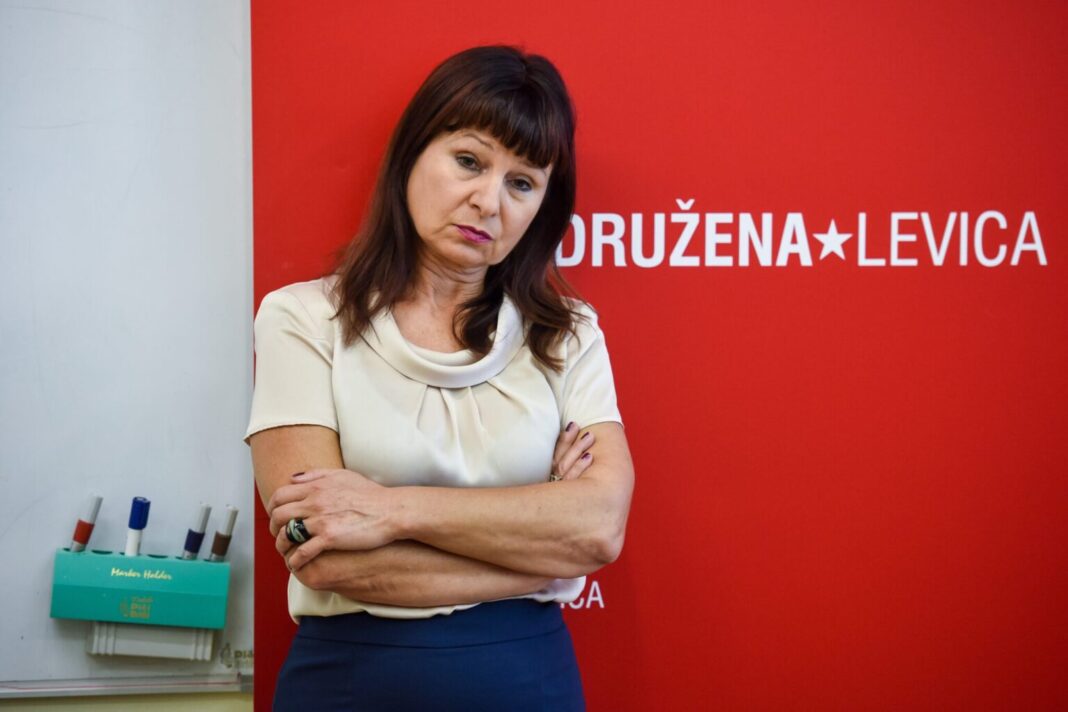By: Matej Markič / Nova24tv
Despite the fact that all of the most developed countries in the world with the highest-quality healthcare systems have a robust private healthcare system in addition to the public one, the Levica party (the Left) is clearly once again wishing they could have their favourite healthcare system from the dreamy Venezuela, Cuba and North Korea in place in Slovenia as well, as in those countries, the healthcare system is under complete control of the central state authorities – meaning, it is completely public. We can all imagine what the quality of their healthcare is like, and consequently, what the quality of life of the citizens of these countries is like, too.
The Lord works in mysterious ways, especially if we consider that the eternal students from the Faculty of Social Sciences, which make up the majority of the Levica party, want to be the ones who get to decide on where, when, and how the people who graduated from medical school, which is considered the most difficult in the country, will work. And the Lord’s work seems even stranger if we consider the fact that these same people intend to continue to push their “Make Slovenia Venezuela Again” agenda and completely nationalise the Slovenian healthcare system.
On its website, the Levica party pompously announces that for years now, it has been drawing attention to the “problem of the afternoon work of doctors,” which Luka Mesec, Miha Kordiš, and other parasites of Slovenian taxpayers’ money contemptuously call “amphibian doctors.” Members of the party, which should be banned by all constitutional standards, are of course most hurt by the privatisation of the healthcare system and the fear of reducing the already over-flourished Slovenian public sector (and to make the whole thing seem a bit better, they also added the platitudes about the corruption risks, lies, false evidencing, skipping of the queues, and the queues being extended). Apparently, their fears are so great that they convened an emergency meeting of the Committee on Healthcare this week, demanding that a competitive ban on afternoon work by private contractors for doctors employed in public healthcare institutions, as well as those who work as concessionaires, be included in Slovenian legislation. In addition, our eco-socialists would like to raise the income taxes, which currently amount to four percent in private healthcare facilities.
Turn Slovenia into impoverished Venezuela – that is the Levica party’s goal
At this point, it should first be emphasised that in healthy democracies, nobody has the right to force anyone else where, when, and ow they will perform their work, as this would be an inadmissible interference with the free will of an individual. This is also very clearly prescribed by Article 49 of the Constitution of the Republic of Slovenia, which says that in Slovenia, “freedom of work is guaranteed,” and “everyone is free to choose their own employment,” as well as “forced work is prohibited.” And besides, a party, which claims that its goal is always to ensure that the workers’ rights are being taken into account, that there is freedom of work, and, in general, that all of the freedoms that we have are being followed in Slovenia, should really know that. However, since such facts should be self-evident to everyone in a democratic and free country, we will instead rather focus on the need for broad and functional healthcare, which the left-wing parties are so bothered by, and against which the core of the aforementioned article on the Levica party’s website is written.
Namely, we must be aware that the provision of private healthcare services does not presuppose the abolition of the universally accessible healthcare system, which is what the members of the most radical Slovenian party are trying to make us believe. Namely, the promotion of private healthcare is only a necessary complement to the public healthcare system, with the first priority always being to offer people the opportunity to choose the appropriate healthcare according to their wishes and needs. Based on this, in the case of private healthcare clinics (due to the influence of the free market mechanisms, which do not exist in public health), there can be healthy competition between service providers, which in turn affects the long-term reduction of prices and bettering of quality of the services provided to patients.
And despite the fact that all of the most developed countries in the world with the highest-quality healthcare systems have a robust private healthcare system in addition to the public one, the Levica party (the Left) is clearly once again wishing they could have their favourite healthcare system from the dreamy Venezuela, Cuba and North Korea in place in Slovenia as well, as in those countries, the healthcare system is under complete control of the central state authorities – meaning, it is completely public. We can all imagine what the quality of their healthcare is like, and consequently, what the quality of life of the citizens of these countries is like, too (according to the World Population Review website, life expectancy in Cuba is 79.18 years, in North Korea 71.89 years, and in Venezuela’s socialist paradise, life expectancy reaches the miserable 72.34 years, while in Slovenia, it is currently 81.85 years). There is no need to explain where the destruction of private healthcare would lead us, but perhaps it would be wise to at least teach the members of the Levica party what that would entail.
To this end, we will take a closer look at Singapore’s healthcare system in the upcoming articles that we will post over the next couple of days, as healthcare in this Southeast Asian country of over five million people is considered one of the best, if not the best in the world. Needless to say, this highly developed city-state has a diversified private healthcare system, giving its citizens an above-average quality of life and one of the highest life expectancies at 83.66 years, ranking Singapore 6th in the world.

